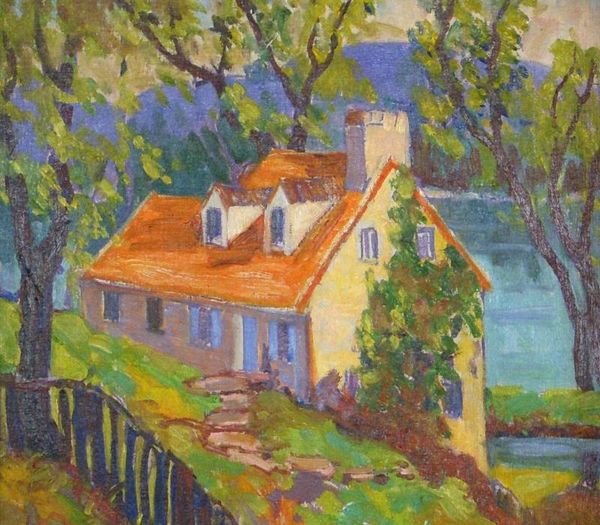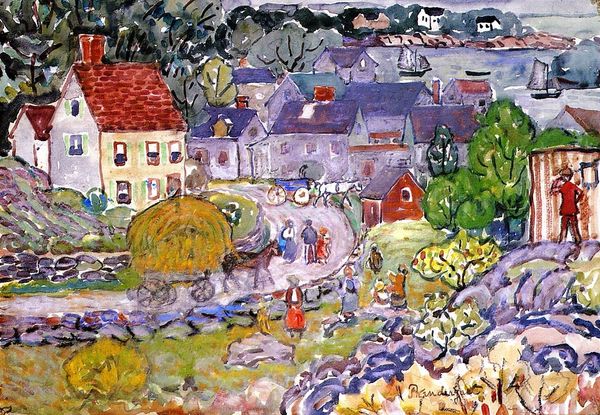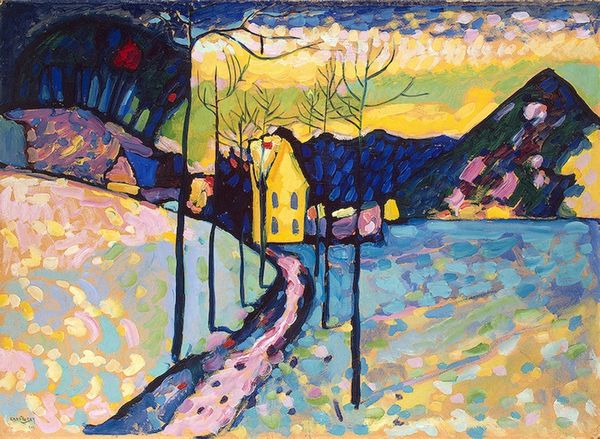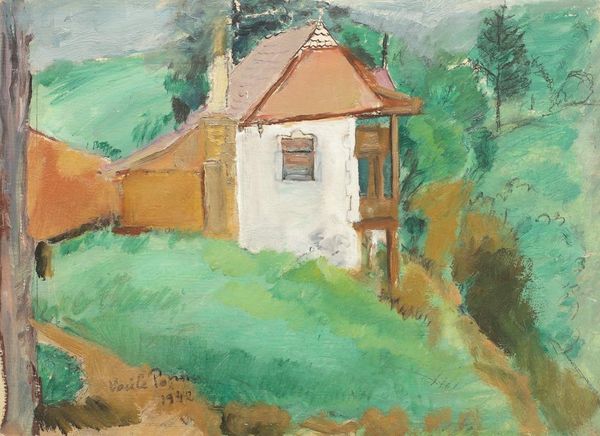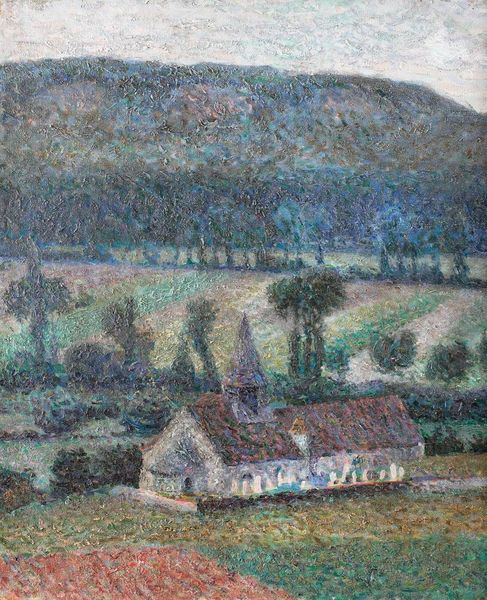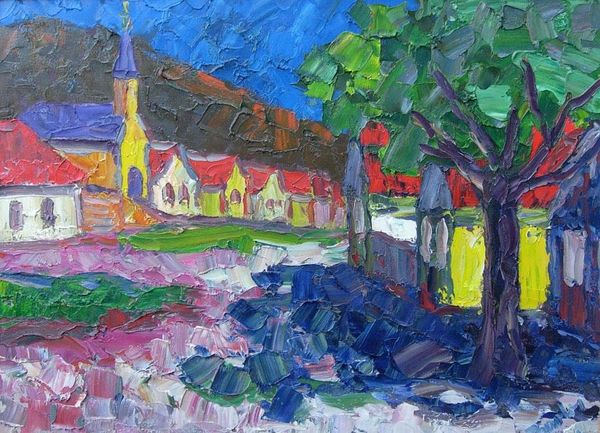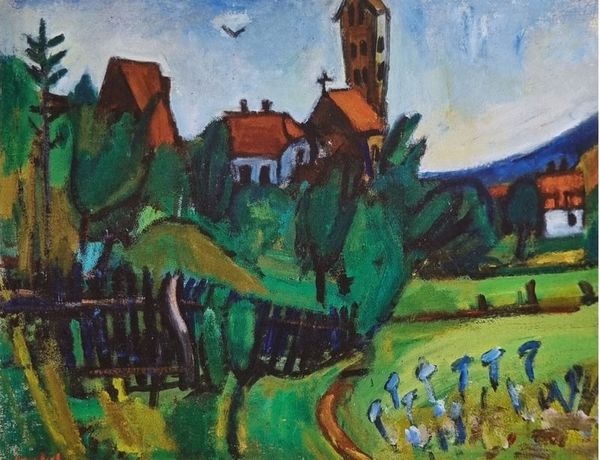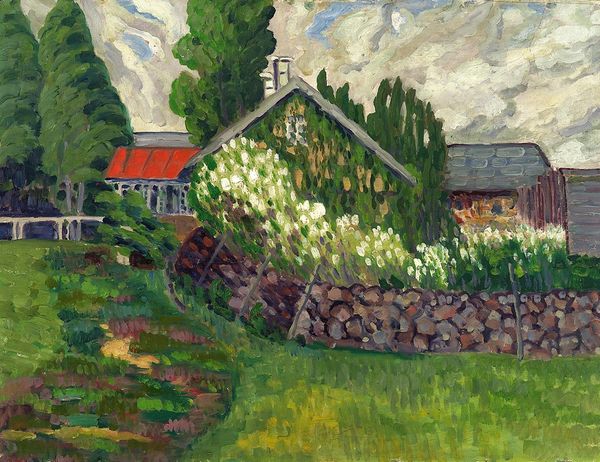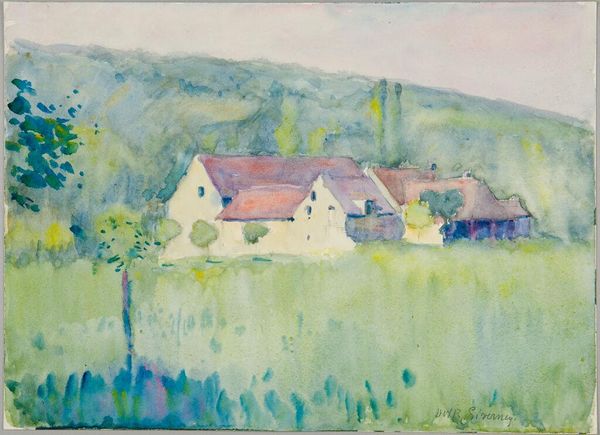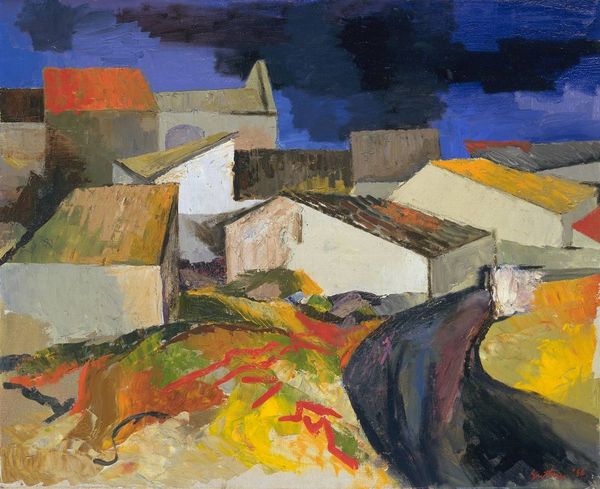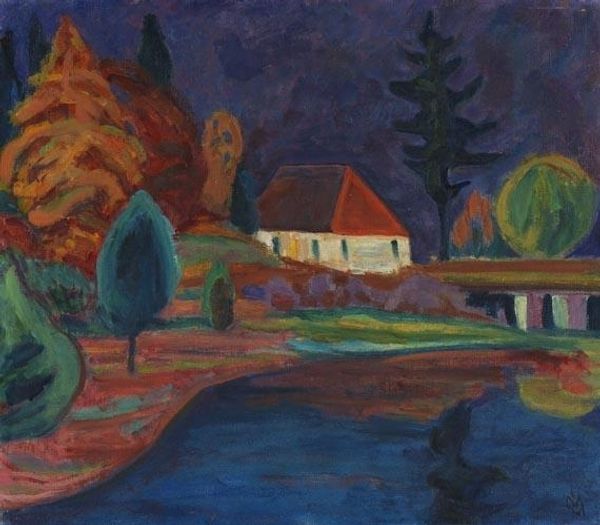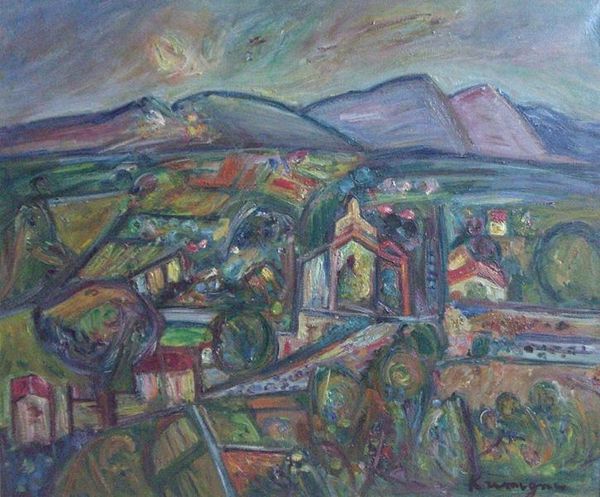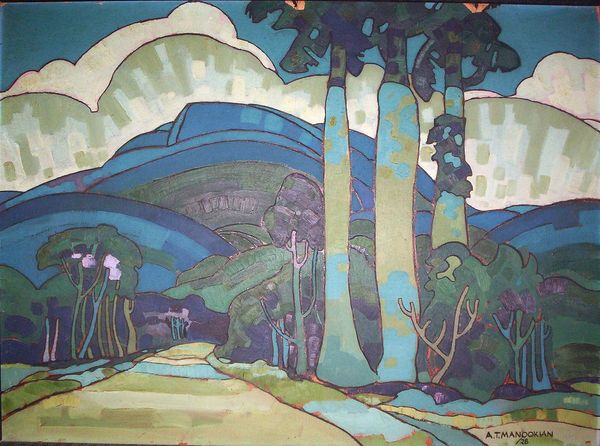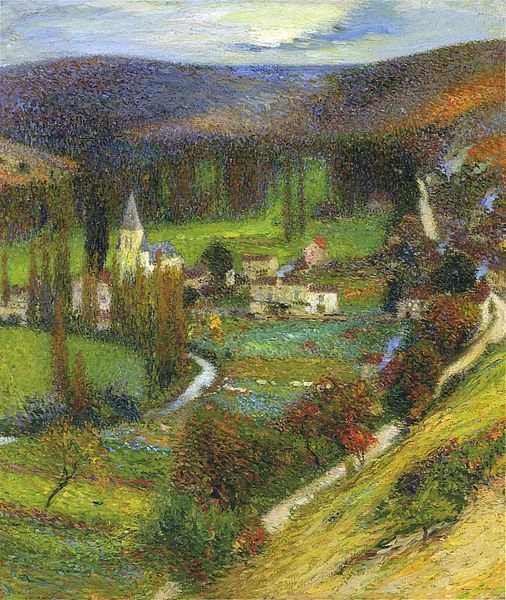
oil-paint
oil-paint
landscape
german-expressionism
house
oil painting
expressionism
naive art
cityscape
expressionist
Copyright: Public Domain: Artvee
Editor: This is “Unser Haus,” painted by Ernst Ludwig Kirchner between 1918 and 1922, made with oil paint. The vivid colors create such a lively feeling, yet there’s also a sense of isolation in the placement of the house. How do you interpret this work? Curator: The "lively feeling" that you sensed contrasts with the historical period after World War I. Consider Kirchner’s service and subsequent mental health struggles; what looks "lively" to us might be interpreted as jarring and unstable to him. This piece wasn’t just a depiction of a house, but a symbol, perhaps, of his search for stability in the face of widespread trauma and shifting cultural values. Editor: I see what you mean. So, the jarring colours, the somewhat clumsy shapes… It's not naive, but expressive of trauma. Can we consider how Expressionism played a role? Curator: Exactly! Think about how Expressionism allowed artists to depict interior states rather than external reality. What might the colours—the almost aggressively bright blues and pinks—tell us about Kirchner’s emotional landscape at this time? Are they hopeful, manic, or perhaps even masking something darker? Editor: It's like he’s desperately clinging to some sense of vibrancy, maybe fighting off the darkness you mentioned? Curator: Precisely. Furthermore, note the prominent role of "nature" in his landscapes. For Kirchner and his peers, a turn to nature also signals their cultural dissent to city life, to pre-war Germany. What kind of audience was this painting meant to affect? What response would it evoke from this audience? Editor: It’s interesting to think about how it reflected not just personal turmoil but a broader cultural anxiety of the time. The idea of this vibrancy fighting some kind of cultural "darkness"… I never considered art reflecting anxiety. Curator: And art reflects, distorts, and challenges society’s foundations. Considering "Unser Haus" through the lenses of social history and psychological experience gives us a richer, more complex understanding, wouldn’t you agree? Editor: I definitely do. It adds so much depth to what I initially saw as just a colorful house in a landscape.
Comments
No comments
Be the first to comment and join the conversation on the ultimate creative platform.
